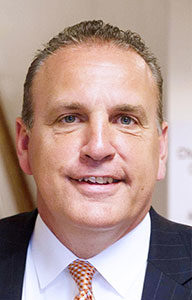By Kevin Shrum
Pastor, Inglewood Baptist Church, Nashville
God hates pride (Proverbs 6:16-19). In fact, James 4:6 notes that God resists the proud. So, let’s be clear. God doesn’t just hate pride; God hates the proud person. This is strong, but biblical language. Pride is not some disembodied sin that someone, somewhere, in another time and place commits. Pride is a sin committed by a person. Pride is being self-sufficient to a fault; pride is arrogance wrapped up in a ‘know it all attitude’; pride is not needing God even when we say that we do. Pride puffs up our self-esteem and destroys relationships. Whereas godly confidence is grounded in a reliance upon God, pride is self-centered.
Pride declared (Daniel 4:28-30). Nebuchadnezzar was a proud man. Twelve months after Daniel interpreted two dreams for him that made him appear powerful and supreme (Daniel 5), Nebuchadnezzar was “walking on the roof of the royal palace in Babylon,” exclaiming to himself that he alone had vast power and majestic glory (Daniel 4:30). It’s one thing to think it; it’s quite another to say it aloud.
Reality defined (Ch. 4:31-33). Such arrogance will not go unpunished. Verse 31 is as clear as it can be: “While the words were still in the king’s mouth, a voice came from heaven: ‘King Nebuchadnezzar, to you it is declared that the kingdom has departed from you.’ ” And what was Nebuchadnezzar’s punishment?
First, Nebuchadnezzar would eventually lose his kingdom. Second, in the meantime, he would lose his mind. For “seven periods of time,” (roughly seven years) Nebuchadnezzar would suffer the humiliation of acting and living like an animal (v. 32). Boanthropy (believe oneself to be a cow) and zoanthropy (believe one is an animal in general) visited Nebuchadnezzar. The once proud king was now grazing in the fields as if he were a wild animal.
In the end, pride has a way of humiliating us. Proud as a peacock, we get caught up in our claims of greatness only to have those claims disproven. Rather than a humble confidence grounded in a personal relationship with Jesus Christ and the indwelling power of the Spirit, we act and speak as if we have all knowledge about all things all the time. God will resist us in our pride (James 4:6). Think about those words. When we are filled with pride, we find ourselves opposed by God Himself. And you know who wins in that struggle, right?
Honor given (Daniel 4:34-37). Is there hope for the proud? Was there hope for Nebuchadnezzar? Yes. Verse 34 says an interesting thing: “But at the end of those days, I, Nebuchadnezzar, looked up …” To look up means that there’s something above you to look at.
This phrase was not just a literary technique employed by Daniel, but a biblical truth describing humility. This is what we must do. We must look up to God by not looking up to ourselves.
The remedies were as immediate as the malady — Nebuchadnezzar regained his intellectual capacities (v. 34).
He honored God rather than himself. He acknowledged God’s sovereign power (v. 35). God restored his wisdom and kingdom (v. 36). Out of his humiliation and a restored kingdom, Nebuchadnezzar glorified God (v. 37). Lesson learned. God opposes the proud but gives grace to the humble. B&R


